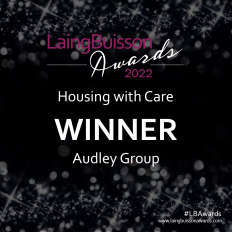What is a residential care home?
A residential care home is a secure setting designed for people in need of everyday help with daily activities. This housing option is mostly considered by people over 55, struggling to live alone and unable or not wanting to stay in their own home.
A residential care home will typically offer you your own bedroom, some of which may have en-suites and other areas being communal.
Residential care includes meals, help with personal care including bathing and dressing, 24-hour staff, physical and emotional care, and care through short illnesses.
Advantages of living in a care home
- Lifestyle – there are organised activities and plenty of company.
- Access to care – everyday help is on hand and some care homes are targeted at specific needs e.g. dementia or Parkinson's.
- Finances – it’s all inclusive, with utility bills, meals and cleaning included in the cost.
- Peace of mind – it’s safe and secure as members of staff are always present.
- Facilities – buildings are specially designed or adapted for purpose.
- Maintenance – this is all included in the price.
Things one can be uncomfortable with in a care home
- Independence – with a more communal style of living, many miss simple, everyday things like preparing their own meals and doing what they like, when they like.
- Accommodation – with just one room per resident, there’s limited storage and it can feel like there’s less freedom.
- Lifestyle – some home comforts like pets may not be allowed. You can’t choose your company and you may experience the discomfort or distress of your fellow residents.
- Quality - negative press has damaged public perceptions of care homes. Standards of care will vary so it’s important to choose one you and your family feel comfortable with.
- Finances – although costs vary considerably, you can expect to pay an average of £28,000 per year for a residential care home, or even as much as £50,000. Trips out, hairdressing and some therapies are usually not included in fees.
An Audley retirement village is different to a care home.
How is care at Audley Villages different?
At Audley, you live and stay in your property and our care team comes to you. Our care services are tailored around individual needs and if there is anything to be changed in the level of care, we offer the flexibility to reassess the care plan at any point.
We can offer at-home support with conditions including stroke, dementia or Parkinson’s, as well as end-of-life palliative care.
Home care services – other help options
Not everyone needs round-the-clock medical care and home care might be the difference that keeps you living independently for longer. If you need personal or social care at home, your local authority can arrange a free assessment of your care needs. They will produce a written plan if you’re eligible for support, or advice on other options if you aren’t.
If you have long-term health requirements you may be entitled to NHS healthcare, which involves an assessment leading to a personalised care and support package. Alternatively, you may be able to get free NHS care and support at home after a stay in hospital, or to prevent you going into hospital.
To apply for either of these NHS services, speak to your GP first.


















